In Mus’ad Abu Fajr’s novel Tal’it Al-Badan, Awda’s grandfather — one of the fictional characters representing the Bedouins of Sinai — is asked by a soldier sent out by the Israeli government to sign a piece of paper to prove that he is “reconciled with the state”.
“I’m reconciled and that’s that,” Awda’s grandfather says.
“Are you saying that you don’t want reconciliation with the state?”
“No, no, I am reconciled with the state. But I am a Bedouin. I don’t know how to read and I don’t know how to write. I know ra’i al- bayt [the landlord]. If you want I can get ra’i al- bayt for you and he can guarantee my reconciliation.”
“We are a state. We deal in paper,” the soldier says.
“You are a state. I am not a state.”
Awda’s grandfather, who witnessed the changing map of Sinai over the years, is a symbolic example of how indigenous communities found themselves estranged in a world they can no longer control or belong to.
For many of them, the experience of being a ‘stranger’ is felt much more deeply. It is not because of differences in language, culture, or identity, but a difference of being. It is in their way of life; in their deep connection to the mountains they live in and the universe; in their knowledge; and in how much they rely on maintaining a healthy ecosystem.
Integration is not a question of living inside borders, holding identification cards, or even serving in the army, but a question of changing power dynamics to shape a world order that embraces different ways of life and thought.
Since the beginning of the COVID-19 pandemic, there was a popular belief that it would fundamentally change and reform our thoughts – offering opportunities to explore new ways of living.
United Nations Secretary General Antonio Guterres, sent a ‘message’ to the world on the UN’s 75th anniversary, emphasizing the need for what he labelled a ‘New Social Contract’, at the national level, and a ‘New Global Deal’ to be applied internationally, which includes ending exclusion, discrimination and racism, and establishing a fairer and greener world.
Yet without real change in the power dynamics, it is easy to forget that the pandemic can reinforce global structures that can entrench us much deeper into a dogma that excludes and shuts out others.
The only way to truly recover better; to strive for an equal and fairer world is through a diffusion of power that allows indigenous communities to share their own knowledge and way of being.
It is to give them the power to send their own message to the world.
SINAI’S BEDOUINS SEND A MESSAGE TO THE WORLD
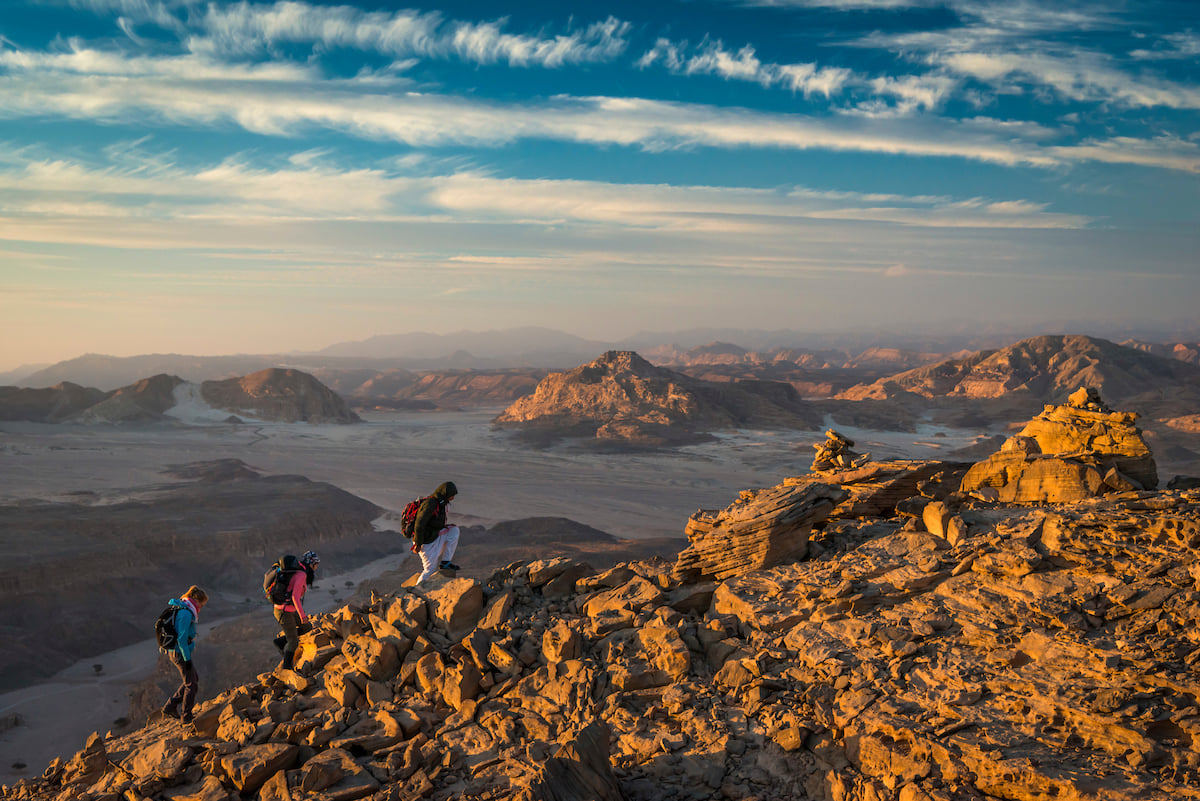
For six long months, faced by the closure of the tourism industry, the COVID-19 pandemic forced the Bedouins of Sinai to return to more traditional ways of life rather than a ‘new normal’; relying on their natural ecosystem for survival and for sources of income.
Now, with the re-opening, the Sinai Trail, Egypt’s first long distance hiking trail, organized several events, starting with Jebel Sumra which was sold out, Um Hadabat, and an upcoming one on November 20 and 21st into El Ramla, the biggest sand desert in South Sinai.
The trail offers a unique and pivotal experience in a time of tremendous fear and uncertainty, and provides ways on how we can reform our world and thought post COVID-19.
“The lockdown created a massive mental health crisis in Europe, and so this trail provides one of the best possible escapes,” Ben Hoffler, co-founder of Sinai Traill tells Egyptian Streets, “we have been receiving more requests from countries like France, Cyprus and others to join the longer trails that can reach 48 days.”
While taking the necessary health precautions through social distancing, limiting number of hikers and sanitizing, the reopening offers hikers a glimpse of the ‘soul’ of the Earth – allowing them to discover knowledge outside of their reach.
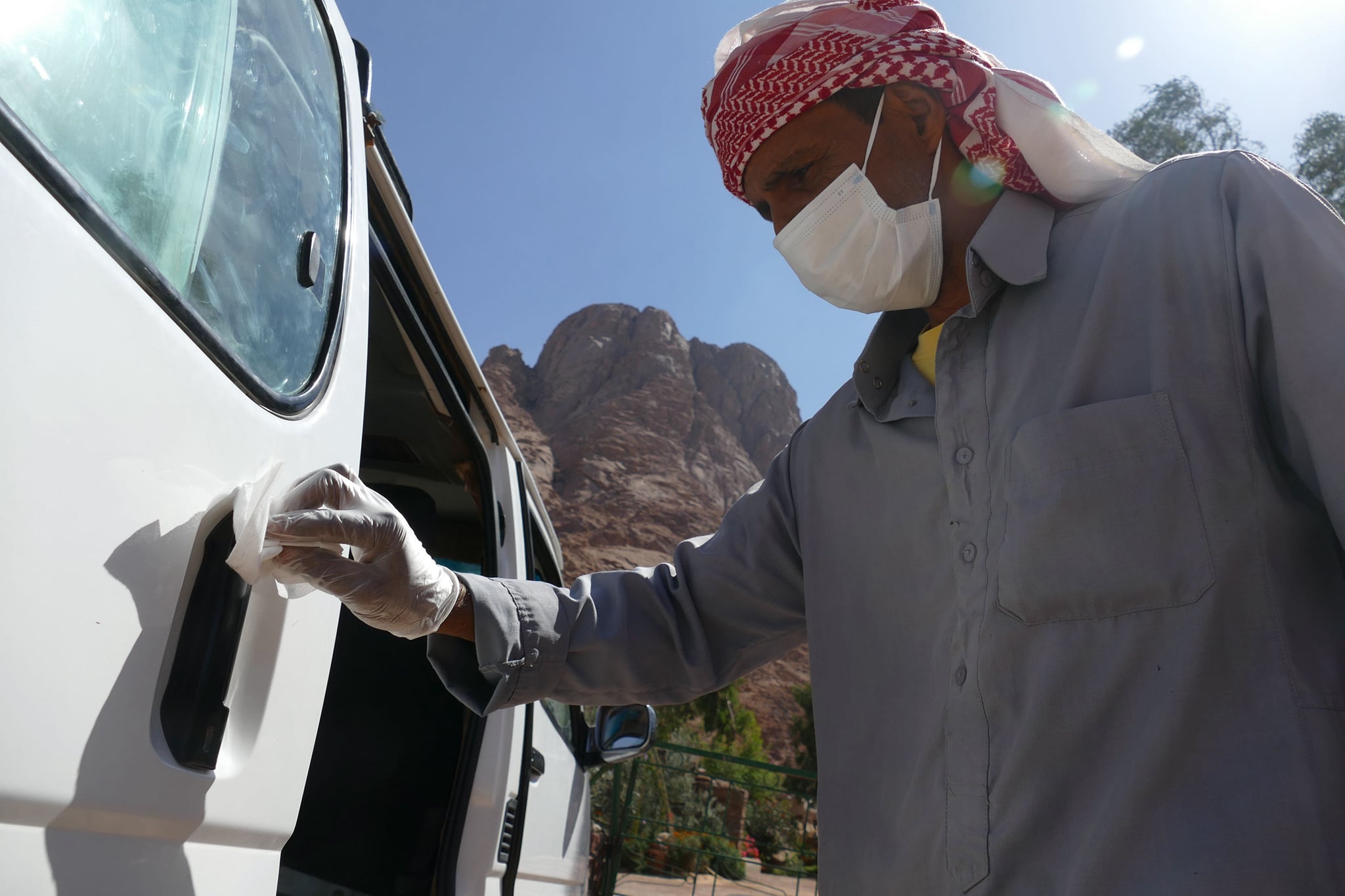
“They no longer prioritize teaching about the knowledge of nature in schools,” Musallem Faraj, a Sinai Trail head guide, says, “but we are here to reconnect people with nature and provide them with this knowledge.”
There is knowledge that is protected through paper, but there is also knowledge that is protected through experience – real and living experiences with the universe. Through the Sinai Trail, the Bedouin communities are given the opportunity to protect their heritage and share their knowledge with the world.
“With the Bedouin – whose heritage has for millennia been passed verbally between generations – it is important we do not just record it in books or museums but in real, living and breathing ways that allow those same channels of intergenerational learning to be kept intact,” Hoffler says, “this is the way we keep it alive for the Bedouin themselves and protect people with nomadic heritage.”
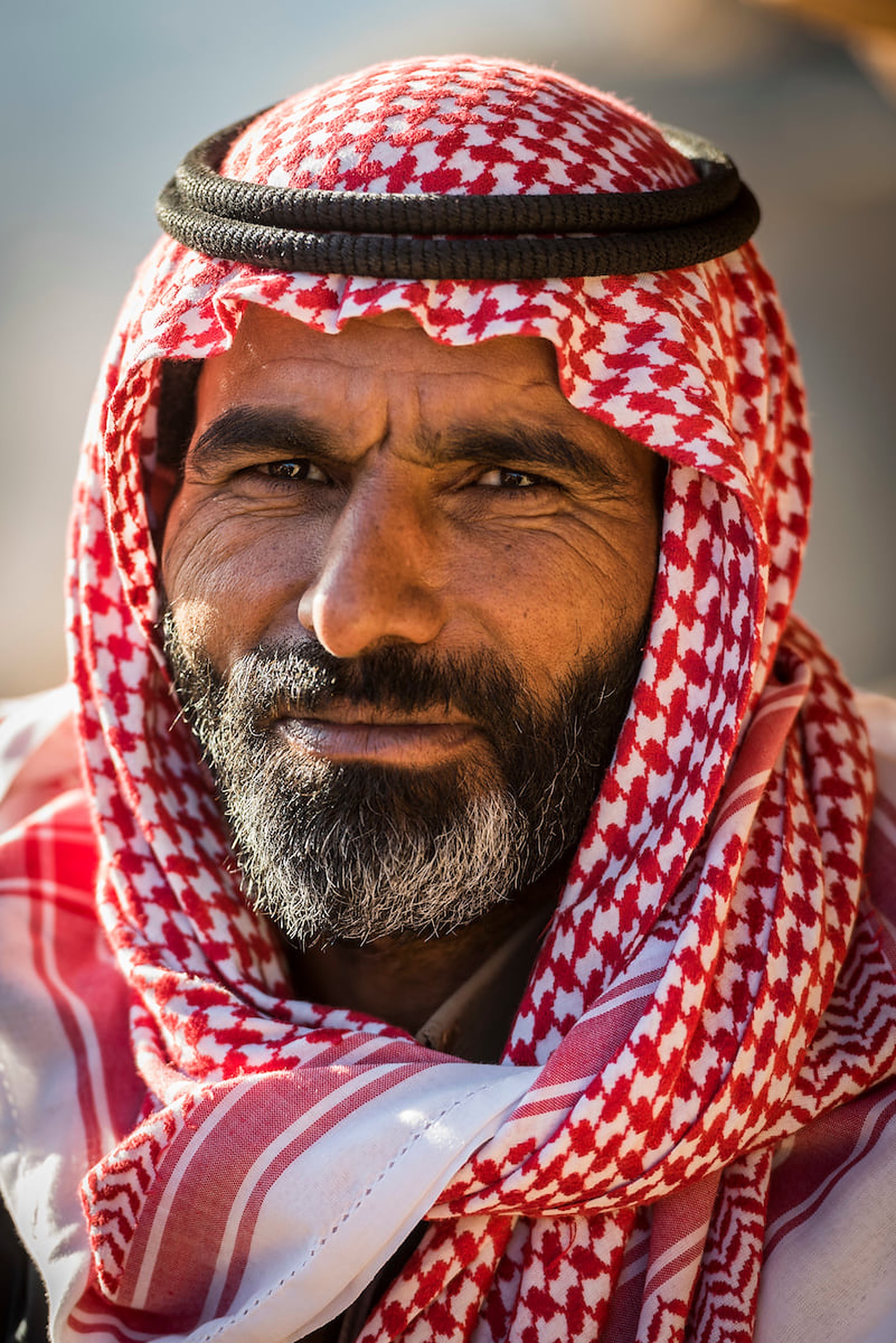
For a post-COVID-19 world, the Bedouin of Sinai have one message to the world: we must protect and reconnect with nature, and most importantly, connect with one another.
“Many people are afraid; afraid of nature and of people or anything they don’t know. When I walk in a city like Cairo, I am amazed by how just similar we all are, and yet when I am stopped in the street, I am still seen as a stranger,” he explains, “but I think this is because people don’t know themselves. When they come here and see nature, they will answer their own questions and reconnect with who they are, and figure out just how close we all are as well.”
However, he sees that there is still hope for this connection to thrive. “I am so happy many Egyptians have started to come to the Sinai trail and that more of them are learning about nature,” Faraj says.
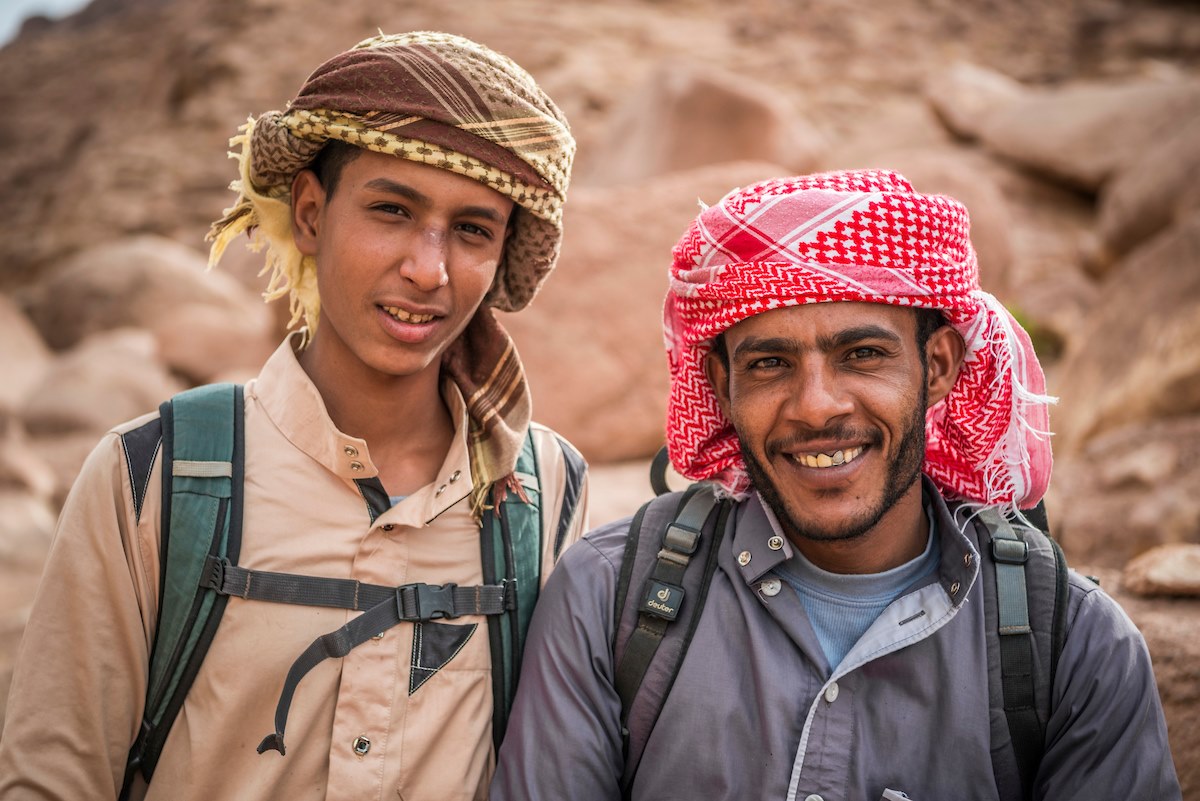
“This is what I want, for Egyptians and other people to see the other side of the country and the world and truly understand it, and this way, no one will feel like a stranger.”
While the world is trying to wrestle with the challenge of resilience and recovery in a post COVID-19 world, the Bedouins in Sinai are seeing it through the lens of their own traditional ways of life.
“We are survivors; we just have to learn how to survive. I cannot wake up in the morning and say, ‘ah, the sun is good today,’ and keep it at this, because I know that maybe later in the evening it will get cold and I will get sick,” Faraj says.
“The essence of our way of life is to really survive – to fall and rise up again every time.”
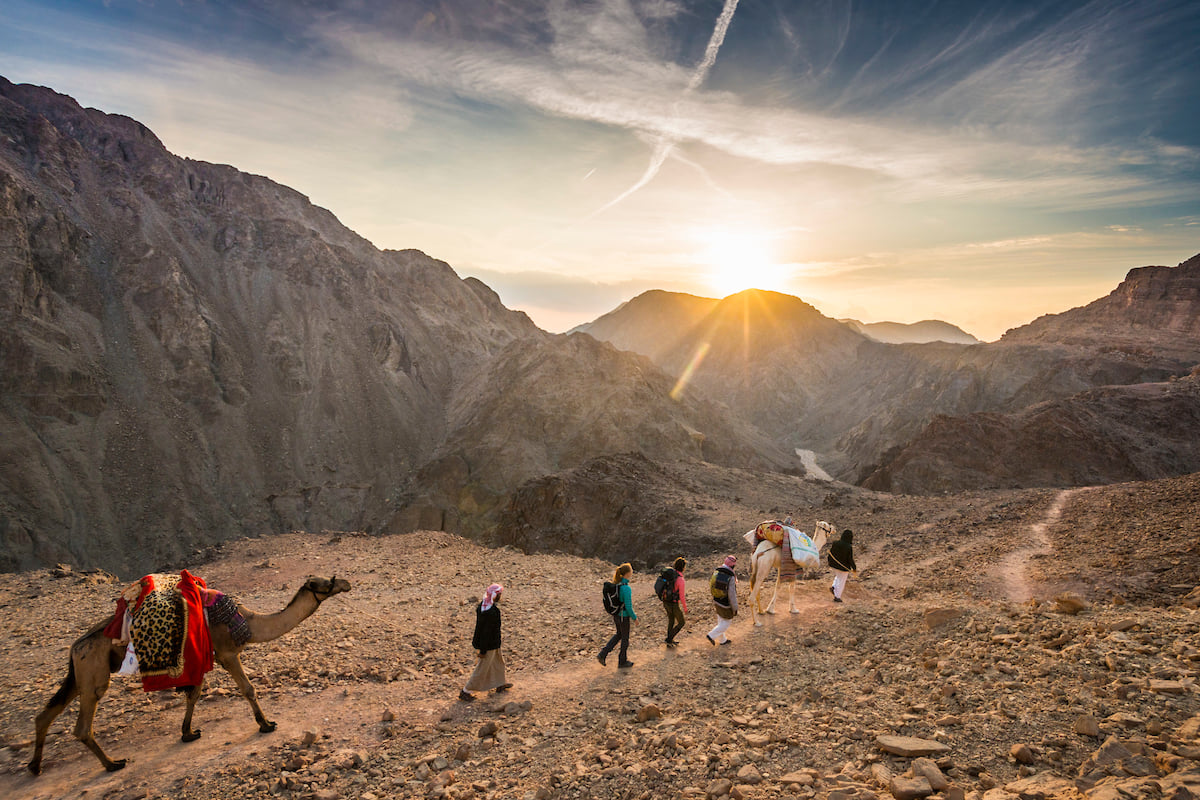



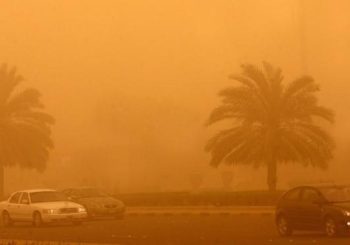
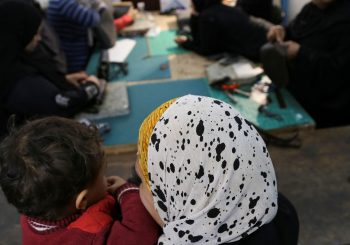
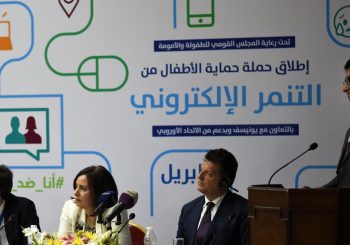
Comments (6)
[…] Egyptian Streets writer Mirna Abdulaal was honoured at the Cairo Climate Talks – an initiative by the German Embassy to promote a stronger partnership between Egypt and Germany towards the environment and fighting climate change – for her work on her article ‘”We need to reconnect with nature”: Egypt’s Sinai Bedouins Send a Message to the World on C…. […]
[…] Egyptian Streets writer Mirna Abdulaal was honoured at the Cairo Climate Talks – an initiative by the German Embassy to promote a stronger partnership between Egypt and Germany towards the environment and fighting climate change – for her work on her article ‘”We need to reconnect with nature”: Egypt’s Sinai Bedouins Send a Message to th…. […]